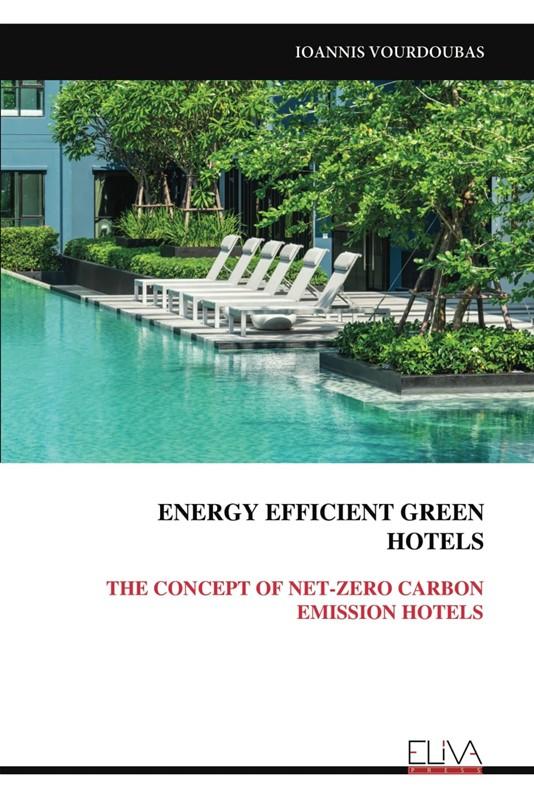New Book - Clean Energy in Hospitality Industry
Dr Ioannis Vourdoubas, a prominent figure in sustainable energy solutions, has authored an innovative book on the de-carbonisation of hotels and tourism accommodation facilities. Published by ELIVA PRESS in April 2024, this comprehensive guide was written over the past three years in the serene setting of Crete, where Dr Vourdoubas resides.
The book aims to aid the hotel industry's transition towards sustainability, aligning with European Union and global policies for climate change mitigation and the advancement of net-zero carbon societies in the coming decades. The hospitality industry, a significant contributor to climate change and environmental degradation, faces increasing pressure to adopt sustainable practices. Dr Vourdoubas’s book offers innovative solutions to meet this challenge, focusing on the development of zero-carbon emission hotels.
Zero-carbon emission hotels strive to minimise their environmental impact by adopting eco-friendly technologies, renewable energy sources and sustainable design principles. The book delves into methodologies for creating net-zero emission hotels and tourism facilities, particularly addressing energy use and fuels controlled by these establishments. Core principles include minimising energy consumption, utilising renewable energy and implementing carbon offset initiatives.
By integrating renewable energy sources, emphasising energy efficiency, embracing sustainable design, and engaging with local communities, these hotels can lead the broader adoption of eco-friendly practices. As consumers increasingly prioritise sustainable options, zero-carbon emission hotels not only help mitigate climate change but also position themselves as leaders in responsible and environmentally friendly tourism.
Dr Vourdoubas’s book is a valuable resource for private and public stakeholders involved in the construction, refurbishment and operation of hotels and tourism facilities. This includes owners, administrative officials, municipal authorities, staff, NGOs and various local and national policymakers. The book outlines the legal framework for the clean energy transition in hospitality, details sustainable energy technologies for this transition, and explores mechanisms for offsetting carbon emissions. Additionally, it provides options for financing the necessary energy projects.
The comprehensive methodology, detailed information, and presentation of various benign energy technologies make this book an attractive read for a diverse audience. Dr Vourdoubas’s work is set to become an essential guide for those committed to transforming the hospitality industry towards a sustainable and net-zero carbon future.
